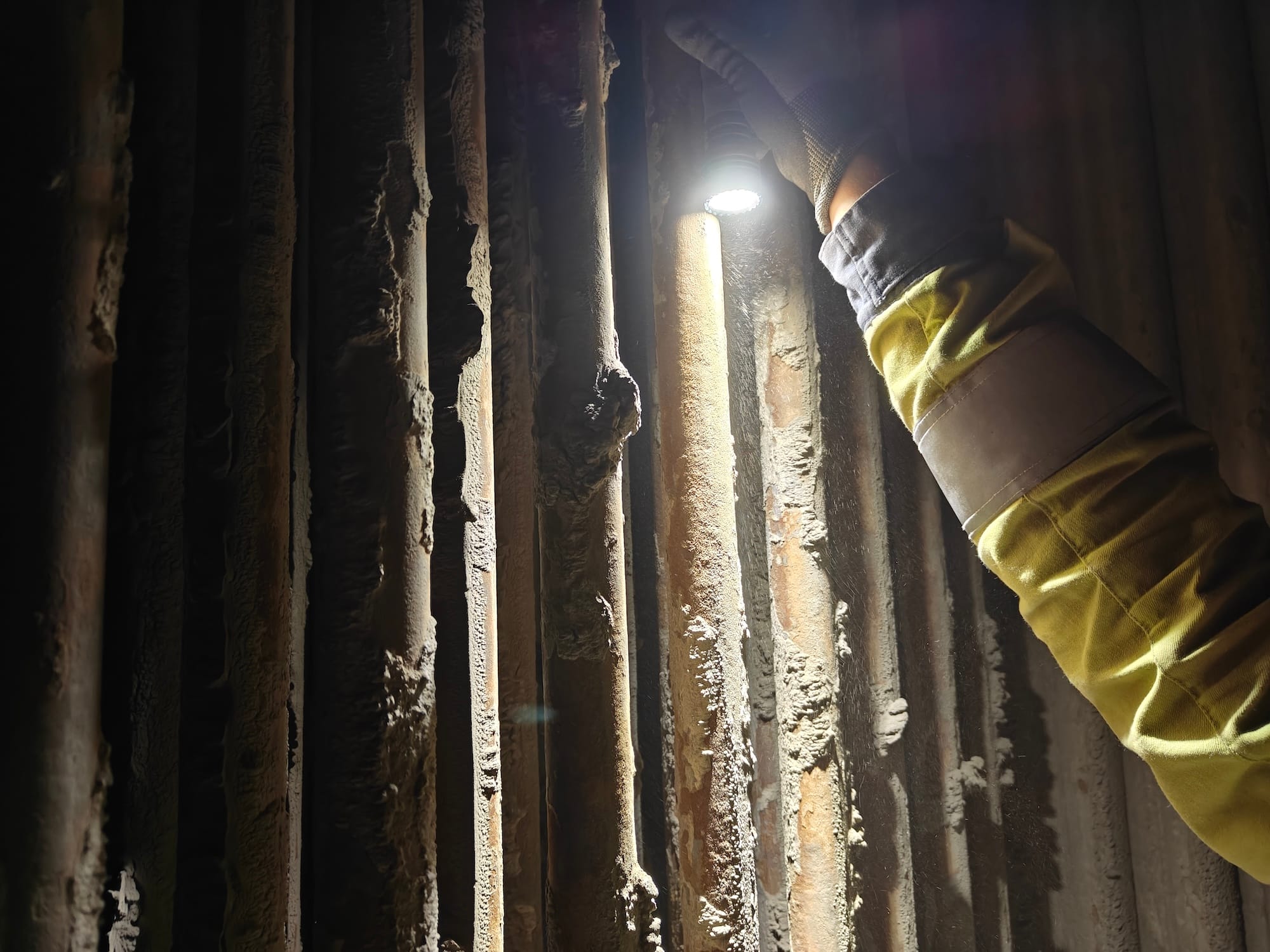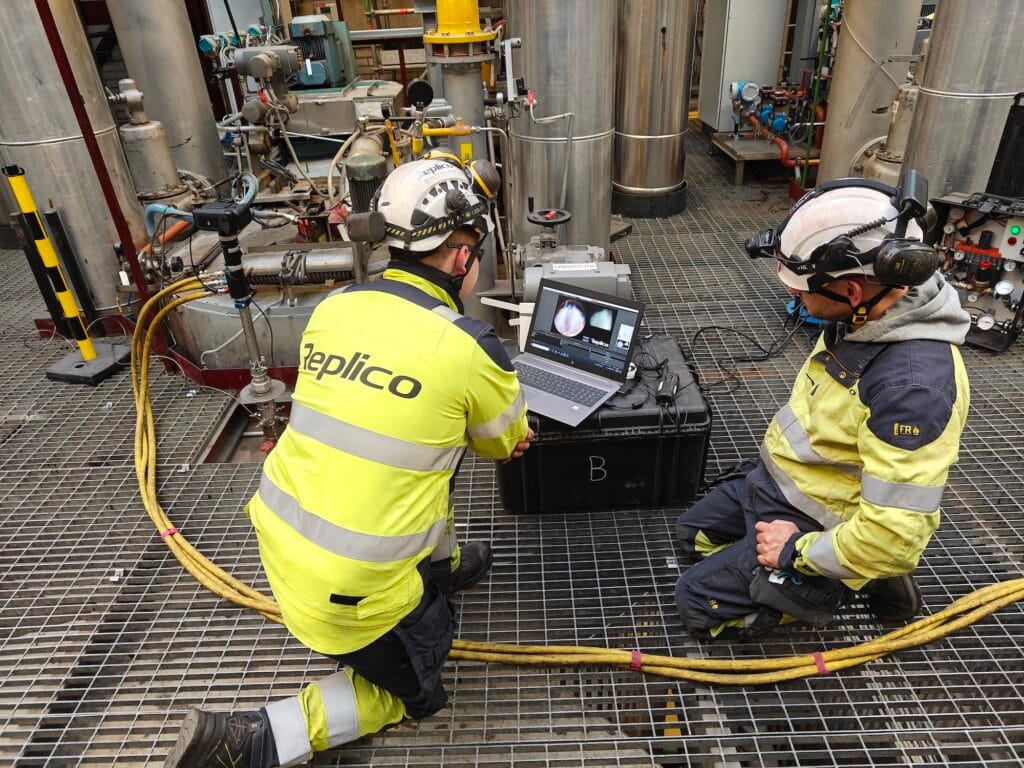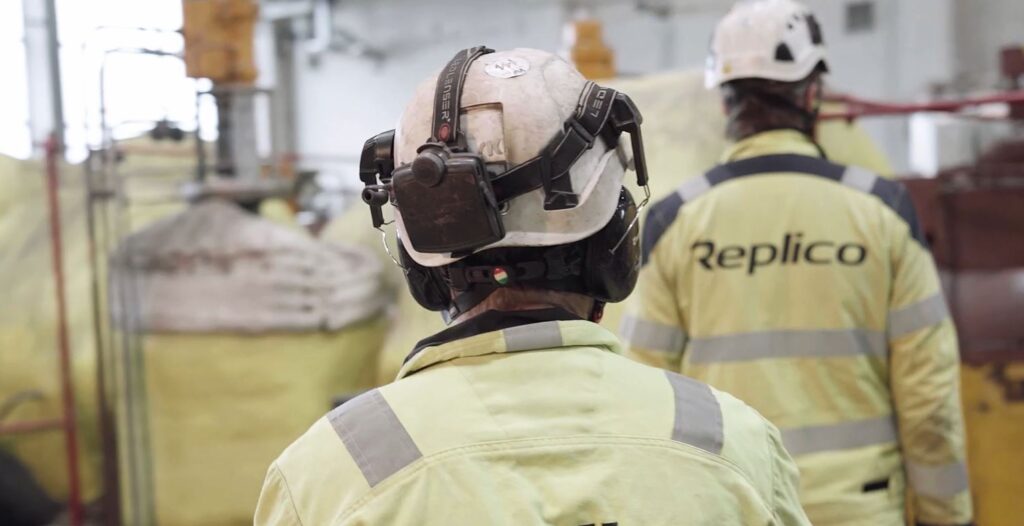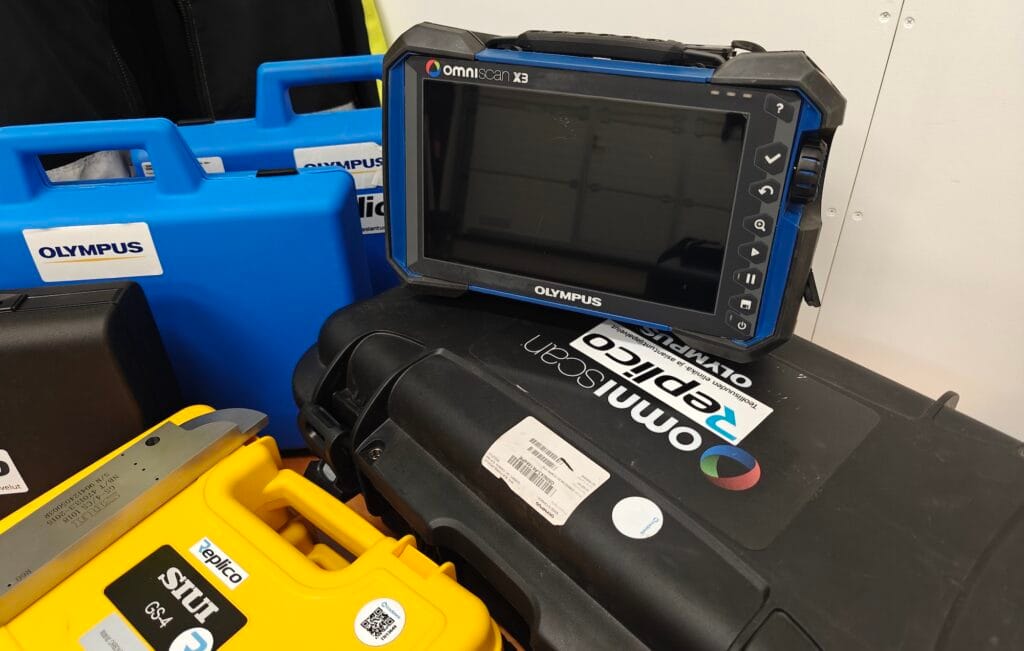The operational reliability of waste incineration plants requires regular inspections and proactive lifecycle management. Replico helps plants to remain operational in challenging conditions by providing comprehensive inspection services and real-time inspection analytics.
Changing conditions pose a challenge
As in the energy sector in general, stability and predictability are what is sought in the operation of waste-to-energy plants burning municipal waste. The aim is to ensure that the entire heating season can be operated safely without unplanned interruptions and with as few surprises as possible.
In waste incineration plants, the conditions on heat transfer surfaces are more challenging than in other forms of energy production. The flue gases produced in the combustion process contain many different compounds, which expose components to various types of corrosion and damage.
These phenomena can occur very quickly in waste incineration plants. Critical changes can occur during a single operating period, and it is necessary to be able to react quickly and, if necessary, identify extensive repair needs during short maintenance shutdowns.
Changing fuel fractions pose an additional challenge in terms of predictability. As a result, the phenomena are not linear but vary from one operating season to another. In order to manage the above-mentioned issues, properly targeted inspections and the rapid utilization of the information obtained from them are key.
 Heat exchange surfaces require monitoring
Heat exchange surfaces require monitoring
Typically, the most critical and challenging areas in terms of waste-to-energy plant operation are the heat exchange surfaces of the water-steam circuit, heating water and steam to higher temperatures. The core of the inspections is to determine when measures are needed to ensure that the plant operates and remains in production until the next overhaul without unplanned downtime.
When the life cycle of different components is managed as systematically as possible over a longer period, even purchases with long delivery times can be made on schedule and at the right time. The main objective of the inspections is to ensure that the next operating season is secured, without compromising safety.
The basis for the inspection plan for future overhauls is based on the existing inspection history. This provides guidelines for the scope of the inspections. The inspection plans are refined at the beginning of the overhaul based on visual observations.
Changing conditions and sometimes rapid phenomena and damage pose their own challenges for waste-to-energy plant inspections. Properly targeted inspections and immediate analysis of the data obtained from them play a very important role in condition monitoring, so that the necessary measures can be taken within a short time frame.
Riikinvoima eco-power plant in Leppävirta has been using Replico’s lifecycle management services for 10 years. Planning inspections and analyzing data collected from inspections over several years has enabled them to stay one step ahead in condition management rather than falling behind.
Replico is an expert in lifecycle management in the energy sector
We offer waste-to-energy plants a comprehensive service and can provide
- inspection planning
- NDT inspections, including related cleaning
- real-time analysis of NDT inspection results and daily recommendations for action
- comprehensive final reporting.
We plan inspections based on previous inspection history and refine them based on visual inspections. We can also take care of the entire inspection process and its coordination. In the end, we put together a comprehensive report with our analysis of the results.
The best results are achieved through continuous cooperation with us: the longer the measurement history, the more accurately future needs can be anticipated.
Ask our experts for more information – we’ll tell you how to ensure quality and performance at your site!





